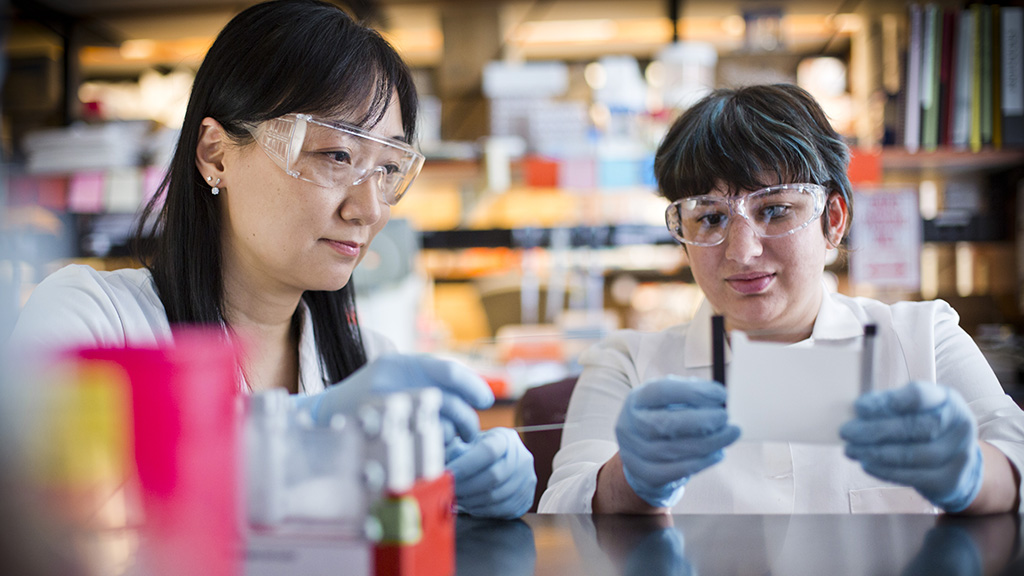Our investigators are working to discover novel signaling pathways underlying the proliferation, differentiation, apoptosis and metastasis of cancer cells, which could potentially lead to the identification of novel targets for therapeutic intervention.

The basic research in the department covers multiple areas of cancer genetics and cancer cell biology.
Cellular signaling networks, their abnormalities in cancer cells, and how they regulate the development and progression of human malignancies are one common area of research among several laboratories. Tyrosine kinases, for example, are examined for their roles in signal transduction, phosphorylation of metabolic enzymes, and the regulation of leukemogenesis and disease progression. Another kinase named LKB1, which activates a group of other kinases and is somatically mutated in several types of cancers including lung cancer, is also examined for its tumor suppressor role.
The role of developmental transcription factors such as KLF5 and ATBF1 are examined for their effects on the proliferation and differentiation of normal epithelial cells in the context of cellular signaling. They are also studied for how their loss of function and changes in activities alter cellular signaling and thus contribute to the interruption of cellular differentiation and tumorigenesis. Signaling networks that control differentiation and proliferation in hematopoietic cells are also studied, including how their perturbation results in hematopoietic malignancies.
The molecular basis of cellular invasion and tumor metastasis is another area of investigation. It spans cellular signaling networks involving pro-metastatic oncoproteins and signaling effectors such as protein kinases and the LKB1 tumor suppressor, how extracellular matrix (ECM) affects tumor growth and progression, and the establishment of mouse models of tumor metastasis.
Other areas of investigation include stem cell biology and the application of stem cells in disease therapy, role of estrogen receptor and its signaling in breast cancer, the molecular mechanisms of DNA damage and repair in oxidative stress-induced mutagenesis and tumor development, epigenetic interruption of cellular signaling in cancer, and cell death and its molecular basis.

